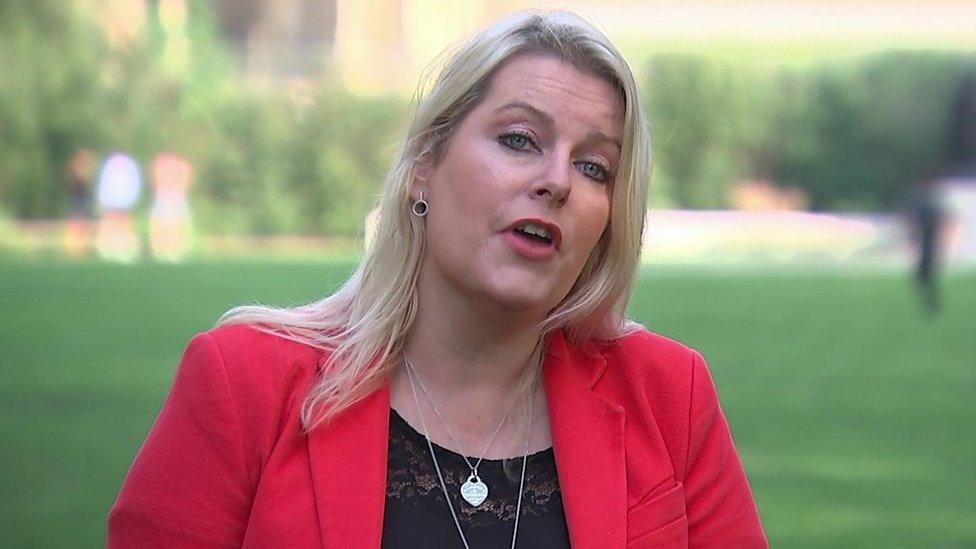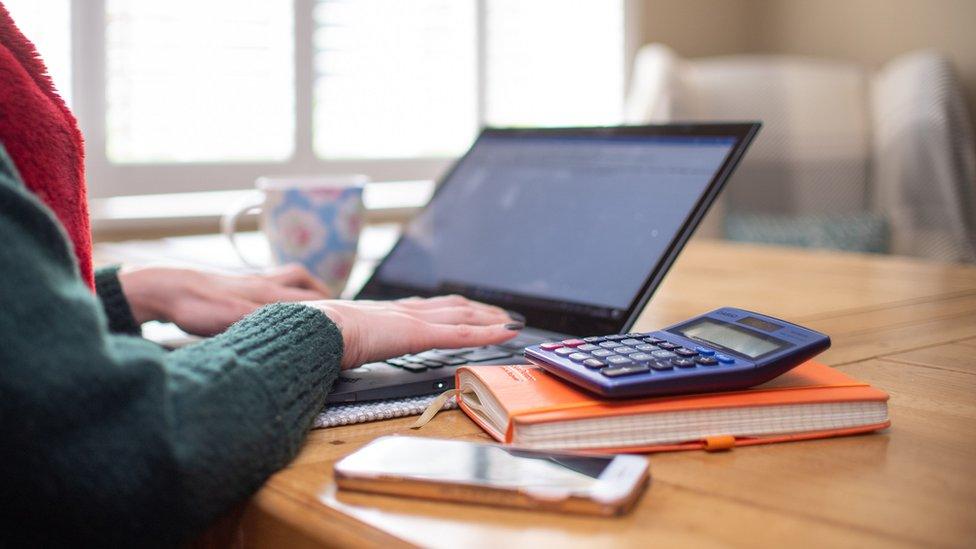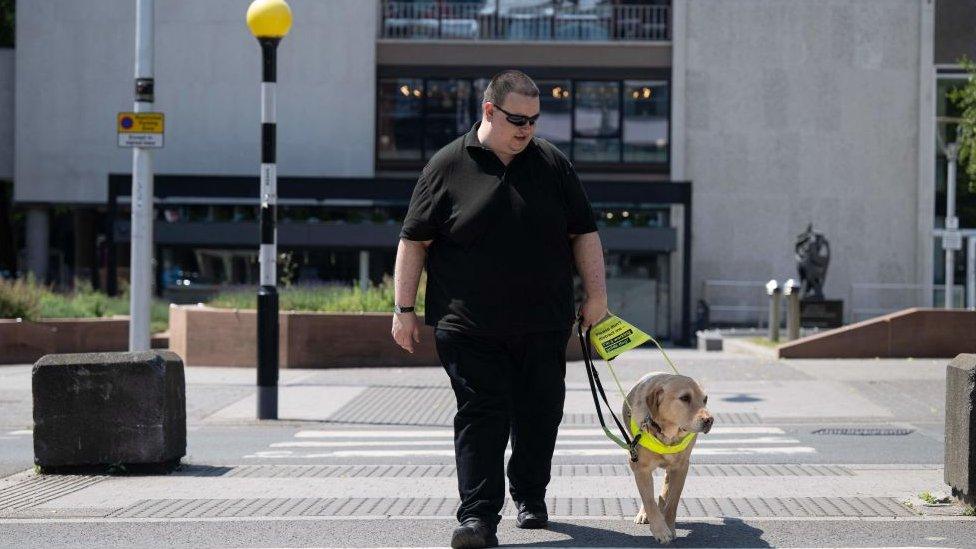Job of minister for disabled people downgraded
- Published

The job of minister for disabled people has been downgraded, with the new holder of the position staying at the most junior level in government.
Mims Davies has taken on the role within the Department for Work and Pensions (DWP), but remains a parliamentary under secretary of state.
Predecessor Tom Pursglove was a minister of state when he held the job.
Earlier, No 10 denied the role was being downgraded as charities called for a new minister to be brought in.
Downing Street said the post, left vacant when Mr Pursglove was made minister for legal migration last week, would be filled by an existing member of the government with other duties.
The prime minister's official spokesman said: "What you will continue to see is a government showing strong support for disabled people and for disabled issues."
The new minister would "lead on that important work", he added.
Mr Pursglove re-entered government as minister for disabled people within the DWP when Rishi Sunak became prime minister in October 2022.
He left the role last week when Robert Jenrick resigned as immigration minister, arguing that Mr Sunak's new Rwanda legislation did not go far enough, and his job was divided into two roles - one responsible for legal and the other for illegal migration.
Ms Davies, who said she was "honoured" to have been given the new role, external, was previously parliamentary under secretary of state - the lowest rung of the ministerial ladder - with responsibility for social mobility, youth and progression.
Her new portfolio of responsibilities has yet to be confirmed, but Ms Davies said she would have a "continued focus on social mobility".
She pledged to "work as hard as I can to ensure disabled people's voices are heard loud and clear", while continuing "to champion opportunities, progression an life chances".
'Further disempowered'
Disability charity Sense said the job of minister for disabled people was "a vital role in government to ensure disabled people's interests are represented" and should not be taken on by someone who was "already juggling other responsibilities".
Another charity, Scope, condemned the change as "an appalling and retrograde move".
Anastasia Berry, policy co-chair of the Disability Benefits Consortium, said: "Despite making up almost a quarter of the population, disabled people are yet again being treated like they don't exist."
Conservative MP Caroline Nokes, chair of the Commons women and equalities committee, said the move "sends entirely the wrong message when it's clear disabled people want more influence over the strategies, action plans, and policies affecting them".
It would "do nothing to stop disabled people feeling further disempowered", she said.
A government spokesperson said Ms Davies would "build upon this government's track record of supporting disabled people".
"The minister will help ensure there is always a strong safety net for the most vulnerable in our society, while tearing down barriers so that every disabled person can realise their potential and thrive."
Disability rights groups have been very critical of the government's record on a number of issues.
- Published22 November 2023

- Published17 August 2023

- Published28 July 2021
